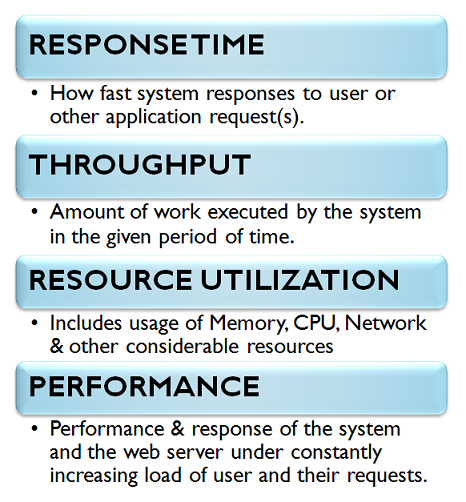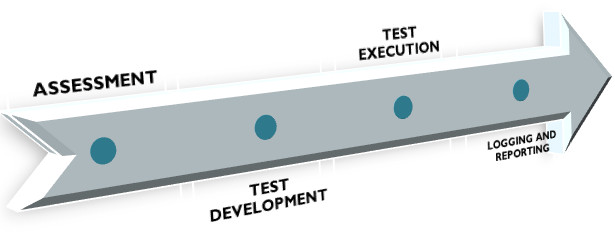


Scalability testing is a type of performance testing that ensures the flexibility of the software product or application to grow in proportion to increasing demands of the end users.
The main objective of carrying out scalability testing is to evaluate the adaptability potential of the software to grow along with and adjust itself to these requirements, in order to work effectively without any problematic issues. In addition, it also delivers the information regarding software's threshold limit up to which, it can be scaled up.

Scalability is one of the non-functional attributes of a software application. Thus, scalability testing may be seen as one of the forms of non-functional testing methodologies to ensure the scalable quality of the system.
It guarantees the smooth functioning of the software application after its upgrade to efficiently meet the rising needs of end users without any issues. It provides solution to the queries like
Scalability testing methodology focuses on following software attributes:

Note: While developing scalability tests, it is preferred and recommended to increase load in increments for subsequent stages to test system at very basic level to advanced stage. Further, test environment needs to be constant and fixed for each different increasing load

In the era of globalization, every organization wishes to grow, to mark its global presence, and this progress necessitates concurrent and adaptive growth of the software. Scalability testing works as an effective tool, to assist the software applications to go along with the greater and rising needs of the users.
Dont forget to share our Scalability Testing Infographics.

Advertisement: